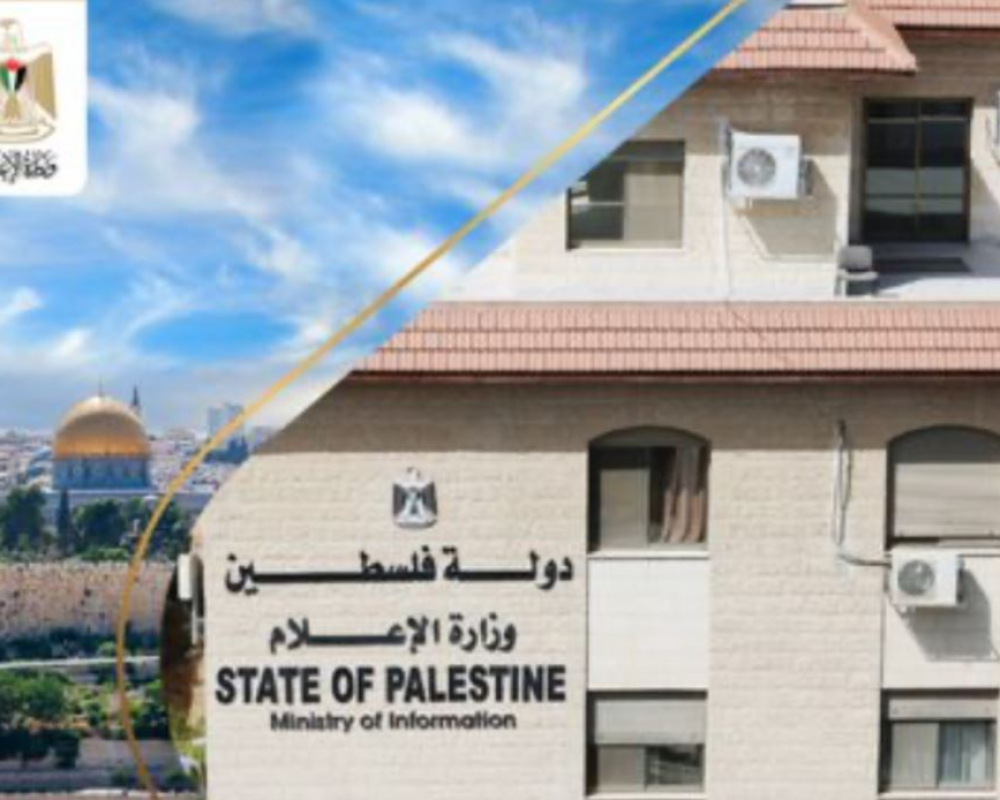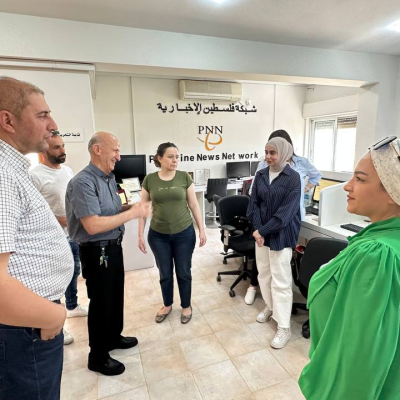
Ramallah/ PNN Exclusive –
Weeks after the formation of the nineteenth government led by Dr. Mohammad Mustafa, and the decision to abolish the Ministry of Information, confusion has spread among Palestinian media outlets. In its weekly statement, the government announced that the Prime Minister's office would handle urgent tasks previously managed by the Ministry and form a committee to propose a comprehensive plan for reallocating its responsibilities.
Journalists are frustrated, questioning who will now handle their affairs.
Muamar Orabi, Chairman of the Watan News Network, criticized the lack of a clear institutional alternative, highlighting the vital role of media in Palestinian defense against Israeli occupation.
Munjed Jadou, Director and Editor-in-Chief of PNN, noted the vulnerability this decision has created for Palestinian media, especially independent outlets.
Jadou added that the government's decision coincides with ongoing Israeli attacks on Palestinian journalists, which have resulted in the deaths of at least 145 journalists, injuries to hundreds, and the destruction of media offices. Jado emphasized the need for balanced governmental support to protect Palestinian media.
The absence of the Ministry has caused complications, with private sector companies and supporting entities requesting new licenses for cooperation. Journalists are left wondering which body will now issue these licenses, Jadou said.

Musab Jaber, Editor-in-Chief of "Sada News," expressed concerns about the lack of a legal and official body for Palestinian journalists and media, emphasizing the need for clarity on legal follow-ups.
Attempts to reach Nasser Abu Bakr, President of the Palestinian Journalists Syndicate, for comments were unsuccessful as he preferred not to speak to the media at this time.
Government spokesperson Dr. Mohammad Abu Rubb explained that the government is temporarily handling pending media institution requests and coordinating with relevant departments until responsibilities are formally transferred.
He assured that the process of transferring responsibilities and amending laws would be completed soon, with ongoing dialogues to determine the new structure for regulating the media sector in Palestine.
Ministry of Communications as Reference
Muamar Orabi added that currently, no one officially knows which ministry is responsible for media licenses, although it is suggested that the Ministry of Communications might be the reference.
Orabi expressed dissatisfaction with this, noting that the media is not akin to selling mobile phones. He also mentioned that the Palestinian Broadcasting Corporation would represent media abroad, creating confusion and loss.
Orabi attributed this decision to a lack of understanding of Palestinian media, especially as Israel supports its media outlets in the narrative battle. He called for the formation of a Higher Media Council inclusive of all media professionals, rather than solely a governmental body, to effectively support and challenge the current adversities faced by Palestinian media.
Urgent Need for a Credible Media Body

Journalists and media outlet managers hope for a significant media body in Palestine to direct media policy, guide journalists, and convey unified messages both domestically and internationally. Such a body would foster public opinion favorable to the Palestinian cause and address internal societal issues. They believe that a unified and robust media structure can improve the current situation.
Journalists' Syndicate Efforts
The Palestinian Journalists Syndicate, in collaboration with the International Federation of Journalists and representatives of independent media outlets, is working to establish an association of Palestinian publishers.
This association aims to coordinate and unify efforts to support Palestinian media. Meetings involving union representatives, media outlets, and academics have discussed the media landscape post-October 7th and priorities for supporting journalists and media institutions.
An agreement was reached to form a founding committee for the association, which should represent all independent, non-governmental, and non-partisan media outlets.